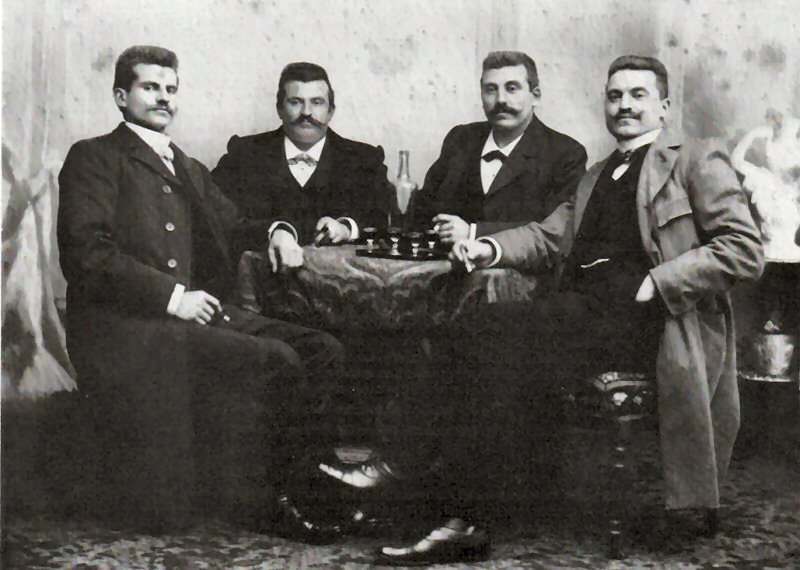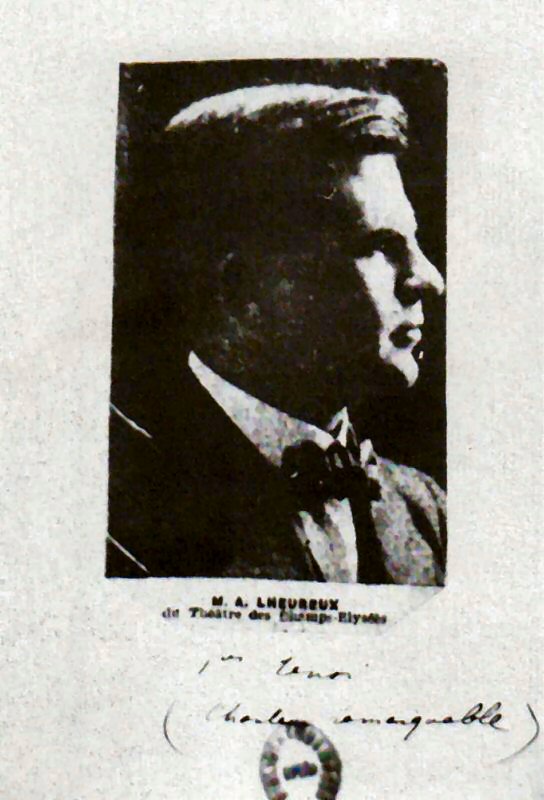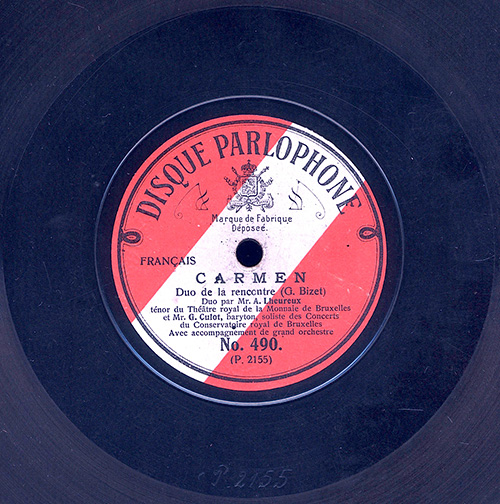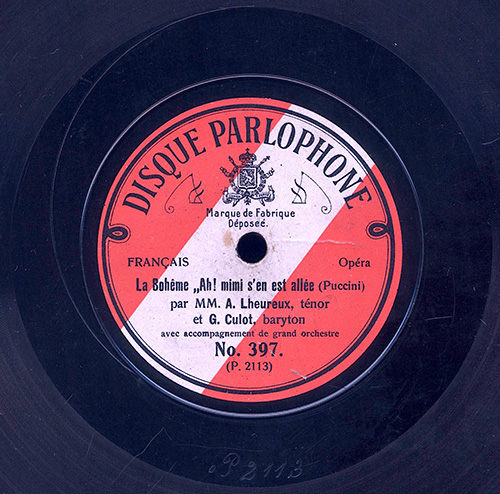Arthur Lheureux
  His father, a miner, died in a fire at the mines. Lheureux worked for thirteen years at a cobbler's shop. He was urged by his relatives to train his voice and he was accepted by Tondeur.
I wish to thank Christian Torrent for the recordings and discography (and for the additions to the discography). La Juive (Léopold) – Brussels, Monnaie, 1909–11 Louise (Chansonnier) – Brussels, Monnaie, 1909–11 Rigoletto (Borsa) – Brussels, Monnaie, 1909–11 Tannhäuser (Walther) – Brussels, Monnaie, 1909–11 Eros vainqueur (Le capitaine) – Brussels, Monnaie, 7 March 1910 Ivan le terrible (Le pope) – Brussels, Monnaie, 10 October 1910 La favorite (Gaspard) – Brussels, Monnaie, 1909–11 Quo vadis – Brussels, Monnaie, 26 November 1910 Les maîtres chanteurs (Vogelsang) – Brussels, Monnaie, 1909–11 Armide (Artémidor, le chevalier danois) – Brussels, Monnaie, 1909–11 Sigurd (Irnprit) – Brussels, Monnaie, 1909–11 Aida (Le messager) – Brussels, Monnaie, 1909–11 Guillaume Tell (Ruodi) – Brussels, Monnaie, 1909–11 Katharina (Porphyrius) – Brussels, Monnaie, 1909–11 L'Africaine (Don Alvar) – Brussels, Monnaie, 1909–11 La traviata (de Letorières) – Brussels, Monnaie, 1909–11 Le feu de la Saint-Jean (Aspeck) – Brussels, Monnaie, 28 March 1911 L'attaque du moulin (Capitaine français) – Brussels, Monnaie, 1909–11 Le pays (Tual) – Nancy, Opéra, 1912/13 Monna Vanna (?) – Nancy, Opéra, 1912/13 Les maîtres chanteurs (?) – Nancy, Opéra, 1912/13 Roma (?) – Nancy, Opéra, 1912/13 Boris Godunov (Shuiskij) – Paris, Th. Des Champs-Elysées, 11 July 1913 Pénélope – Paris, concerts Colonne, 1913/4 Carmen (José) – Paris, Opéra-Comique, 16 January 1916 Les quatre journées – Paris, Opéra-Comique, 1916–25 Béatrice – Paris, Opéra-Comique, 1916–25 Aphrodite – Paris, Opéra-Comique, 1916–25 Louise (Noctambule) – Paris, Opéra-Comique, 1916–25 Cavalleria rusticana (Turiddu) – Paris, Opéra-Comique, 1916–25 Louise (Julien) – Paris, Opéra-Comique, 1916–25 Manon – Paris, Opéra-Comique, 1916–25 Sapho – Paris, Opéra-Comique, 1916–25 Marouf (Le fellah, Un muezzin) – Paris, Opéra-Comique, 1916–25 Madame Sans-Gêne (Niepperg) – Paris, Opéra-Comique, 1916–25 Paillasse – Paris, Opéra-Comique, 1916–25 Roméo et Juliette Hérodiade Faust Messaline Lohengrin Discography Lyrophon, Paris, 1909 (?) P1901 Aida (Verdi): Ô céleste Aïda Parlophone 172 P1902 Rigoletto (Verdi): Comme la plume au vent Parlophone 172 P1905 Mon gentil Pierrot (Leoncavallo) Parlophone 174 P1908 La valse de la neige (Tac Coen) Parlophone 173 P1909 Berceuse nègre (Clutsam) Parlophone 174 P1910 La marche de Paris (Popy) Parlophone 177 P1911 Fiançailles (Wesly) Parlophone 173 P1913 Que ne peut on rêver toujours (Goublier) Parlophone 177 La muette de Portici (Auber): Amour sacré de la patrie (w Culot) Parlophone 180 Les pêcheurs de perles (Bizet): Au fond du temple saint (w Culot) Parlophone 180 P2090 Mignon (Thomas): Adieu, Mignon, courage Parlophone 376 P2091 Mignon: Elle ne croyait pas F2091, Parlophone 377 P2092 Mattinata (Leoncavallo) F2092, Parlophone 378 P2093 Paillasse (Leoncavallo): Pauvre Paillasse F2093, Parlophone 379 P2094 Manon: Le rêve F2094, Parlophone 380 P2095 Manon: Ah! fuyez F2095, Parlophone 379 P2111 La mule de Pedro (Massé) Parlophone 392 P2113 Bohème (Puccini): Ah, Mimi s'en est allée (w Culot) Parlophone 397 P2123 Ave Maria (Gounod) F2123, Parlophone 455 P2155 Carmen (Bizet): Je suis Escamillo (w Culot) Parlophone 490 P2156 La forza del destino (Verdi): Solenne in quest'ora (w Culot) F2156 Reference: Les grandes voix du Hainaut, à l'époque du 78 tours, Belgium, 1985. |

